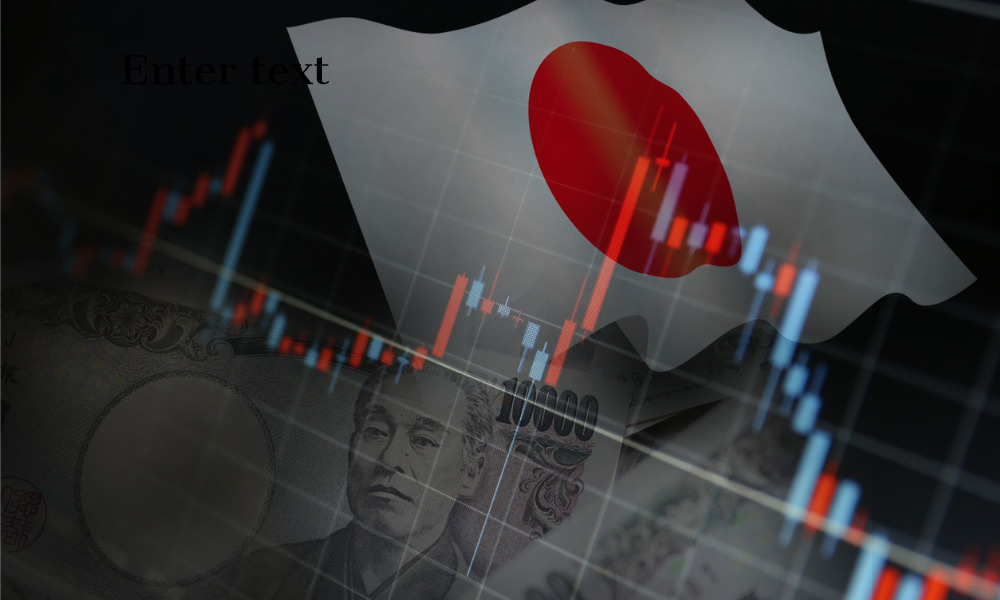

Japanese shares need to jump five large hurdles in early 2024 to build on their mighty rally this year.
That’s the view of analysts who see the nation’s equities indexes struggling over the next few months against a stronger yen, weak consumer spending, too many investors chasing a narrow range of stocks, competition from overseas share markets and political instability at home.
Nomura Holdings Inc. chief strategist Naka Matsuzawa expects Japan’s equities to drop around 5% over the next six months, while analysts at JPMorgan Chase & Co. and Saxo Markets see stock gains slowing to around 5% to 10% next year, after a more than 20% jump in benchmark indexes in 2023.
“This rally could be fragile in the next three months,” said Kelvin Leung, a portfolio manager at Robeco Hong Kong Ltd. “It may also be reasonable to assume some more share price volatility,” given that demand may prove to be fickle from some inexperienced investors that bought into the Japan rally, he said.
Most observers see a different picture by midyear, with the Nikkei 225 index projected to trade at fresh three-decade highs at that time, according to a Bloomberg survey.
Japan’s benchmark Topix rose 0.7% to 2,349.38 on Thursday, still about 3% below its September peak. The Nikkei 225 Index is hovering just below a 33-year high after the Bank of Japan’s decision a day earlier to keep the world’s last negative interest rate on hold.
These are five key negative factors that will keep investors nervous in the coming months:
The yen weakness that has been a tailwind for Japanese equities may be coming to an end, which would mean an adjustment period for stocks. The yen has jumped about 6% since it touched this year’s low against the dollar in November and the shift is being driven by expectations that the BOJ will end negative rates next year while the Federal Reserve and other central banks likely cut rates.
While Governor Kazuo Ueda said on Tuesday that at this point it’s difficult to lay out a plan for an exit from negative rates, economists and traders still expect a shift in the coming months.
“Some of the rise in the Japanese market this year has been boosted, if not exaggerated, by the currency,” said Matsuzawa at Nomura. The “overstretch” of the dollar-yen led to an extra 7-8% gain in the Topix Index, he said.
Tony Roberts, who manages the Invesco Pacific Fund (UK), which has outperformed 91% of its peers in the past year, favors companies with a competitive edge that are less sensitive to the yen, such as chipmakers including Tokyo Electron Ltd. The fund manager is underweight Toyota Motor Corp., which has risen 46% so far this year, citing the automakers’ sensitivity to yen moves.
Too many investors seeking the shares of the same large-capitalization companies is another risk. That may mean the stocks are overpriced, and a big number of holders may trigger a selloff if market sentiment deteriorates. Half of the positive performance in the Topix rally from April-September was generated by 27 companies, according to Goldman Sachs Group Inc. strategists.
Many investors who found it difficult to invest in China because of a slowdown in the world’s second-biggest economy parked their money in Japan. But the lack of expertise drove a lot of them to focus on big firms such as Sony Group Corp. and Hitachi Ltd., according to Neil Newman, a strategist at japanmacro.com.
Continued weakness in Japan’s consumer spending may also be an obstacle to the share rally in early 2024. The nation’s gross domestic product contracted the most since the height of the pandemic in the three months through September, as households reined in spending.
Wage increases not catching up with inflation rates are likely making Japanese consumers more reluctant to shop. A population that’s one of the world’s oldest and shrinking is also a recipe for sluggish spending.
“Your consumer base is declining and you’re selling it into a population decline, which is not a great starting point,” said Invesco’s Roberts.
Interest rate cuts overseas may attract investors away from Japanto those equity markets as the BOJ is expected to start raising borrowing costs.
“Once we see the change coming through from the Fed tone, investors are going to flock back into the US equity markets,” said Charu Chanana, a market strategist at Saxo Markets.
Chanana expects a downward correction in Japanese equities of about 10% until mid-2024, when the market bounces back to end 5% higher by the end of next year.
Overseas traders sold a net ¥58 billion ($405 million) worth of Japanese stocks and futures in the week ended Dec. 8, according to Tokyo Stock Exchange data. Foreign investors were net sellers of the nation’s equities for a third week, as the recent surge of the yen added pressure to the market.
Support for Japanese Prime Minister Fumio Kishida has continued to fall in polls taken after he reshuffled his cabinet to contain a funding scandal. It’s rocked the ruling Liberal Democratic Party and fueled speculation that the LDP may consider changing its leader before his term ends in September.
Tokyo prosecutors raided the headquarters of two ruling LDP factions, Kyodo News reported Tuesday. Unstable political conditions “may put downward pressure on Japanese equity markets,” JPMorgan chief Japan equity strategist Rie Nishihara wrote in a note, as “a substantial decline in the cabinet’s approval ratings could lead to a search for a new leadership.”

Former Northwestern Mutual advisors join firm for independence.

Executives from LPL Financial, Cresset Partners hired for key roles.

Geopolitical tension has been managed well by the markets.

December cut is still a possiblity.

Canada, China among nations to react to president-elect's comments.
Streamline your outreach with Aidentified's AI-driven solutions
This season’s market volatility: Positioning for rate relief, income growth and the AI rebound
